
Once again my busy schedule has struck and I have had to reach for a piece I had penned about a mystery television series. For those whose interests lie solely in the printed page rest assured that book reviews are coming!
Colonel March of Scotland Yard was a television series from the mid-50s based on John Dickson Carr’s short stories set in the Department of Queer Events within Scotland Yard. The premise is not dissimilar from Roy Vickers’ Department of Dead Ends in that it exists to investigate offbeat, odd and otherwise inexplicable cases.
I should say up front that I haven’t read the short stories. Part of the reason that this post has been on the shelf was that I had hoped to track down an affordable copy but having spent months trying I am having to give up. As keen as I am to read it, I can’t justify spending close to $200 on a copy right now, particularly as people whose opinions I trust say it’s not Carr’s best work. Someday I will hope to rectify that.
The star of the show was Boris Karloff who was, of course, most famous for his roles in monster movies several decades earlier. This is a significantly different type of role and he plays his part with a sort of wry, good humor, often needling his colleague Inspector Ames (Ewan Roberts) who appears in most of the episodes and Inspector Goron of the French Surete (Eric Pohlmann) who is a semi-regular guest.
The stories themselves are quite uneven in quality and they do suffer from the limitations of the filming styles and constraints of the period as well as the short running time. As a result of the latter plots can sometimes feel a little flimsy or key elements stand out a little too much but even the episodes that don’t work brilliantly as mysteries will usually be quite entertaining in terms of the performances or broader concepts.
Some stories do stand out as being strong however such as the first episode, The Sorcerer, which features a simple idea but a clever and effective one. Fans of Carr’s gothic elements will likely enjoy The Talking Head which I think stands up best of the series as a whole and has a very clever explanation. Death and the Other Monkey and The Stolen Crime are also each excellent, particularly the latter which I consider one of the strongest episodes of the show.
I will say that this series does require a little patience with and tolerance for 1950s television. The viewer will often notice the limitations of the studio space (Passage at Arms struck me as somewhat ludicrous), slightly misplayed lines and, of course, somewhat static RP performances. Fortunately the latter is nowhere near as bad as you might expect given the era and fans of British films and television from the era may enjoy some of the before-they-were-famous guest appearances. Of these the Christopher Lee appearance in At Night All Cats Are Gray stands out for his attempts at an extremely questionable French accent.
Though it can be a little rough around the edges, Colonel March of Scotland Yard is frequently imaginative and fun. Episodes zip by and while I sometimes wanted an extra plot element to sink my teeth into, the content is usually good. If you have never sought it out before I would suggest that it is certainly worth a look.
The broadcast order of these episodes differs by territory so I am going by the sequence they are in on Amazon Instant Video. Summaries and comments on every single episode follow after the cut.
Episode Guide
Episode One: The Sorcerer
Script by: Paul Monash

The premise: A man called Cusby visits the Yard to voice his anger at his wife’s analyst who he feels has an unnatural hold over her, loudly declaring that if he doesn’t leave her alone he will kill him. At her next session she talking with him, exploring her psyche by making associations. When she looks up she discovers that he has been killed. The room was completely sealed, locked from the inside with no external lock on the door and there was no one else in it. If Mrs. Cusby was not responsible then who killed her analyst?
Verdict: A solid introduction to the series though the as live shooting style may take some getting used to if you’ve not seen much fifties television. The concept of a murder taking place during a consultation is really fun and makes for an interesting howdunit. While the trick is quite simple, I think it is effective and well explained.
Episode Two: Present Tense
Script by Peter Green

The Premise: Colonel March’s niece accompanies her husband whom she is about to ask for a divorce to an airfield where she witnesses his plane crash. When she starts to claim she can hear his voice and him playing the piano her family and friends are concerned and March comes to stay to see what’s going on.
Verdict: This episode didn’t appeal much to me, largely because of some of the acting performances from the guest actors. Towards the end of the episode there are some fairly spectacular examples of reaction shots that are so ridiculously big that they are unintentionally comical. The explanation of what had been going on feels like something of a stretch too.
Still, Dad’s Army fans may get a kick out of the appearance of John Laurie as a Doctor.
Episode Three: At Night All Cats Are Gray
Script by Leslie Slote

The Premise: While at dinner with Inspector Ames, a woman comes up to March and asks him to pretend to be with her. She reveals she is frightened of a man with red hair. Later March is assaulted in his home and on investigating the woman’s house finds her dead, seemingly of an accident.
Verdict: Striking a lighter tone than either of the previous episodes, this story is pretty slight and not especially queer. Viewers are not likely to struggle with identifying the killer – the only real question is how it will happen. Of more interest is a performance from a young Christopher Lee sporting a rather unconvincing French accent.
Episode Four: The Abominable Snowman
Script by Leslie Slote

The Premise: Colonel March and other members of the Himalayan Climber’s Club discover footprints purported to be of the abominable snowman in the snow around their homes. March suspects that murder is intended – a fear realized when there is an attempted attack during a presentation of film from a recent expedition.
Verdict: An enjoyable adventure that I think has some fun moments, even if the explanation given doesn’t quite make sense. There is a part of the story that seems to be setting up an impossibility that sadly never really gets explained which is a shame.
Episode Five: The Headless Hat
Script by Leslie Slote
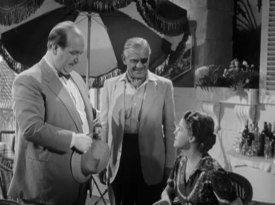
The Premise: Colonel March is staying at a Pension in France when an old friend from the Surete arrives to speak with the owner. He has come because one of her tenants has been killed in a dockyard struggle, leaving a clue to the identity of a wanted criminal in the form of a large hat with an initial sewn into its lining.
Verdict: While the change of setting is to be welcomed and Karloff’s exchanges with Eric Pohlmann’s French Inspector are delightful, the mystery is weak and convoluted. This is more adventure fare than puzzle and generates little suspense. It doesn’t help that none of the plans the characters adopt make any sense. Skippable.
Episode Six: The Second Mona Lisa
Script by Leslie Slote

The Premise: A somewhat shady art dealer invites Colonel March to see a find he is planning to have authenticated: a second painting by Leonardo da Vinci of the Mona Lisa. He has lined up two interested parties, an Emir and a Texan millionaire, to buy the piece in a private auction if it can be authenticated. After the auction however the winner comes to believe that he has been swindled. Can March work out what happened?
Verdict: No impossibility here but I do appreciate the simple conceit of this episode and its discussion of the real value of artwork. March doesn’t really have to work for the solution which will come easily, but I did appreciate its simplicity.
Episode Seven: Death in Inner Space
Script by Leslie Slote

The Premise: Colonel March is in Paris giving a speech about interplanetary communication. A scientist comes up to him afterwards to congratulate him on his speech and invite him to his home to witness an experiment. A man is placed in a locked chamber to put him in a state close to suspended animation but when the party goes to check on him they discover the oxygen failed and he has suffocated. But was it really an accident?
Verdict: Something akin to a locked room though the crime is far from impossible. The idea that all of the suspects are under observation at the time of the murder provides an interesting starting point but there’s no great idea at work here. As for the message from Mars stuff, it feels quite surreal.
Episode Eight: The Talking Head
Script by Leslie Slote

The Premise: A Doctor at March’s club tells him about a case of one of his patients whose fiancée’s twelve year old son may be trying to kill him. Moments after the Doctor leaves, March receives a phone call intended for the Doctor telling him that the man they were discussing has had an accident. After talking with the victim March learns that the boy believes his dead father told him to kill him.
Verdict: A superb story with an ingenious hook and genuinely clever solution. The macabre elements of the story are a perfect fit for Carr and there are some excellent performances.
Episode Nine: The Devil Sells His Soul
Script by Arthur Behrstock

The Premise: At the funeral of Lord Telford members of his household gather but none are mourning his death. They agree that they should feel free but no one believes that the old man would have died naturally. Several of the group go to see Colonel March and ask if he can arrange for a mass hypnosis to be performed to see if any of them were responsible for the death.
Verdict: Be prepared for one of the least convincing mass hypnotisms you will ever see in a murder mystery. I am always rather partial to the family secret being discussed at a funeral idea as a starting point and I think the characters are established pretty well. The hypnotism itself is ridiculous however and the resolution fell flat for me.
Episode Ten: Murder is Permanent
Script by Leslie Slote

The Premise: The owner of a beauty salon is murdered while her hair is shampooed. Several of the employees have motive but the woman who hated her most, her daughter-in-law, has an unusual alibi.
Verdict: This is a cracking episode. While I think the killer’s identity is obvious from the start, the way it is done is wonderfully simple and effective. Margaret Halstan and Elspeth Gray are excellent as the owner and her daughter-in-law.
Episode Eleven: The Silent Vow
Script by Peter Green
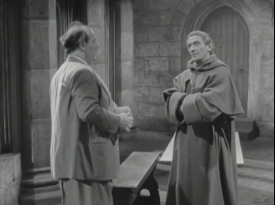
The Premise: Colonel March and Inspector Goron are having a drink in a cafe when a man on a nearby table dies from drinking poisoned wine. Goron’s efforts to investigate are hindered when a witness is revealed to be a monk who has taken a vow of silence after the murder.
Verdict: As entertaining as Pohlmann’s Inspector Goron can be, this story never convinces and it certainly doesn’t make the most of its distinctive plot twist. There is a little tension in the showdown between March and the villain at the end but even that feels ineffective.
Episode Twelve: Death and the Other Monkey
Script by Leslie Slote

The Premise: A scientific researcher complains that the monkey he was experimenting on has been exchanged for another creature. Later he is found dead in a room that was locked from the inside having been poisoned by the gas taps being turned on. Inspector Ames believes it was suicide but March thinks it murder…
Verdict: A fantastic episode. The solution is clever and while the means is an adaptation of an old classic, I think it is handled well. The script and performances perhaps emphasize the killer’s motive a little too effectively but this is a very good twenty five minutes of television.
Episode Thirteen: The Stolen Crime
Script by Paul Tabori

The Premise: A man comes to Scotland Yard to ask Inspector Ames to arrest him because he has devised the perfect crime to kill his wife. He explains the details of his plan but Ames tells him that he cannot do anything because no crime has been committed, sending him home. When the wife dies on the day he said he was planning the crime to take place he and March go to investigate.
Verdict: A joy from start to finish. The premise for this story is excellent and certainly catches the attention and the cast, though it is pretty small, each give wonderful performances. Everything is fairly clued and the whole thing hangs together very well, even if the killer’s identity is not a surprise. A highlight of the series.
Episode Fourteen: The Silver Curtain
Script by Leslie Slote

The Premise: A gambler who is down on his luck receives an offer of a job from a man who keeps winning small sums at the table. Following his employer to a courtyard, he sees the man walk around a fountain and moments later the man is found dead with a knife in his back and no one else in sight.
Verdict: We are in impossible crime territory and while the trick is understandably quite simple, it is worked well. The characters are good and there are some good secondary questions to answer. Another triumph!
Episode Fifteen: Error at Daybreak
Script by Leslie Slote

The Premise: March is holidaying at the seaside when a boy asks him to help retrieve his ball which he thinks one of the adults has stolen. As they walk along the shore March observes a businessman walk along a jetty preparing to dive in when he collapses clutching his chest. The man’s doctor tells March that it is a heart attack but he notices blood on the rocks. By the time the police arrive the body has apparently washed away making it impossible to confirm the cause of death.
Verdict: Solid. This story opens in a very charming way that showcases Colonel March’s playful side with a few good gags. The case is interesting enough though it builds to a somewhat hammy conclusion.
Episode Sixteen: Hot Money
Script by Leo Davis

The Premise: A bank clerk follows a masked robber to a law office where he calls the Police and keeps watch. There is no other exit to the room and only person inside is a lawyer who agrees to allow the Police to search his office but they find no trace of the money.
Verdict: This episode throws us into the thick of the action and while there is little mystery about who carried out the crime, I enjoyed the process of following March as he works out how they have hidden the money. The viewer cannot really deduce where that would be without knowing what has been searched already and I do think that another possible exit for the money is left unaddressed but the episode is entertaining enough that I didn’t mind.
Fans of the Carry On films may appreciate a performance from a young Joan Sims as a secretary.
Episode Seventeen: The Missing Link
Script by Leslie Slote

The Premise: A man and a woman break into a museum to steal the skull of Damascus Man, the missing link. One of the pair is captured while the other gets away, apparently with the skull but when she is interviewed she claims that not only did she not get away with it but that it is a fraud.
Verdict: A fun concept for a story though it suffers a little from the limited cast size meaning that it is easy to guess who is responsible. There are some nice moments though, not least when March and Ames get caught in a trap.
Episode Eighteen: The Case of the Misguided Missal
Script by Leslie Slote

The Premise: A prayer book that once belonged to a necromancer disappears from inside an academic’s locked safe and appears inside a tower in the space of just a few minutes. When it is found in a room on the other side of the quadrangle in a room in a tower there is a body there too while the floor outside had been varnished during the time of the disappearance.
Verdict: A great premise for an impossible crime is squandered with some flat, hammy performances from the guest cast that makes the criminal all too easy to detect. There is a nice little sequence with a magician explaining how a crime was carried out but I hoped for much more.
Episode Nineteen: The Deadly Gift
Script by Paul Monash

The Premise: A barmaid receives an apparently commonplace gift of a music box from a criminal ten years after his death. Later the solicitor who was responsible for passing on the bequest is killed.
Verdict: A lighthearted romp of a story that doesn’t offer much in the way of detection but is presented with a light touch. Sandra Dorne is charming as Rosie and Ewan Roberts gets to demonstrate his singing voice.
Episode Twenty: The Case of the Lively Ghost
Script by Leslie Slote

The Premise: A medium becomes concerned when she believes that her efforts may have summoned a real spirit.
Verdict: Once again I think this is an episode with a fun central premise that perhaps does not fully realize its potential although there are certainly some strong moments. I enjoyed the sequence in which the mystic and March explain a lot of the medium’s tricks and the seance itself is neat, even if the explanation is not particularly taxing.
Episode Twenty-One: Death in the Dressing Room
Script by Leo Davis

The Premise: Colonel March is invited to see a Javanese dance at a friend’s club. He is concerned however when during the dance she makes a hand gesture signifying a need for help. Shortly after the performance she is found dead in her dressing room.
Verdict: Richard Wattis is an actor who I invariably enjoy so I was pleased to see that he not only appears but gets a good deal of screen time in this story. Unfortunately the case is dull and I do not particularly care for the way it is worked.
Episode Twenty-Two: The New Invisible Man
Script by Leo Davis

The Premise: A peeping tom calls the Police to report that he has seen a pair of gloves rise from a table and shoot a gun. When they investigate the flat they find the table but no traces of the body.
Verdict: Can we say that this premise has not aged well? A somewhat pervy older man watching women undress with his binoculars is treated primarily as a source of comedy which doesn’t sit very comfortably with me.
The solution to the mystery is mechanically clever enough if somewhat impractical. Inspector Ames’ final line though is quite charming though and it does at least end the episode on a high note.
Episode Twenty-Three: Passage at Arms
Script by Leslie Slote

The Premise: Colonel March intercepts a woman with a gun in her handbag waiting outside a club where a fencing match between French and English teams will take place. She tells him about an unhappy love affair with one of the competitors and agrees with March to come meet him later but instead she is found dead.
Verdict: Uneven but with some entertaining moments. The rivalry between March and Goron is kicked up a notch by the inclusion of the fencing match and the stirrings of their sense of national pride and I enjoyed the focus on Goron’s methods which make a nice contrast with March’s. I think the restrictions of the studio space feel quite apparent towards the end as there is nowhere near enough room for the fencing match and the results look a little awkward.
I would add that March doesn’t so much solve the case as the murderer presents their own guilt which I do not find a particularly satisfying way to catch a murderer.
Episode Twenty-Four: The Invisible Knife
Script by Leslie Slote

The Premise: A man suspected of having murdered five of his business partners comes to the Department to report that he himself has been the victim of multiple murder attempts since returning to Britain.
Verdict: There is never any doubt who the villain will turn out to be in this story but that doesn’t stop the fun. In some ways it actually heightens it.
The solution to the mystery of how Pennacott killed each of his business partners is clever enough but not exactly fairly clued as we don’t see the crime scene clearly. Regardless I enjoyed getting to that point and while a few developments are fairly obvious, Karloff plays those moments well.
Episode Twenty-Five: The Case of the Kidnapped Poodle
Script by Arthur Behrstock

The Premise: A young boy visits Scotland Yard to report the theft of his pet poodle who had been left to him by an elderly woman who had been a refugee. Meanwhile Ames investigates the theft of a valuable diamond…
Verdict: This is not the most complex or surprising mystery but I think it is done pretty well. For one thing the performances are fairly enjoyable, particularly Michael Shepley as Sir Nigel.
Episode Twenty-Six: The Strange Events at Roman Falls
Script by Paul Monash
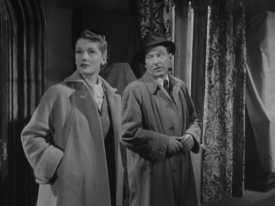
The Premise: A woman arranges to let a clifftop house to live in with her reclusive mystery writer husband. When she reports that he has fallen she stands accused of the murder.
Verdict: This episode is designed to build up to a moment that should pay off as an exciting reveal for the viewer but unfortunately it is too well clued, blunting its effectiveness. This is a shame because I like the atmosphere, the performances and I think the idea is a strong one.
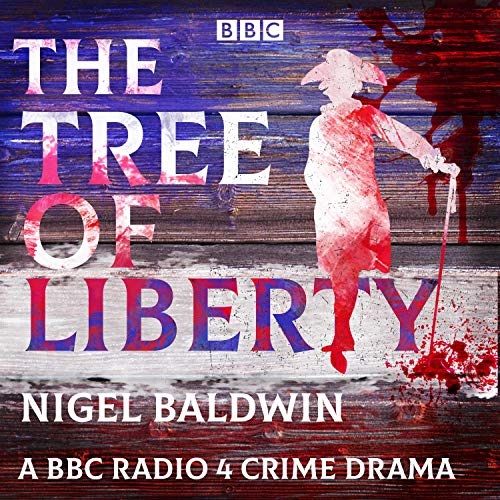
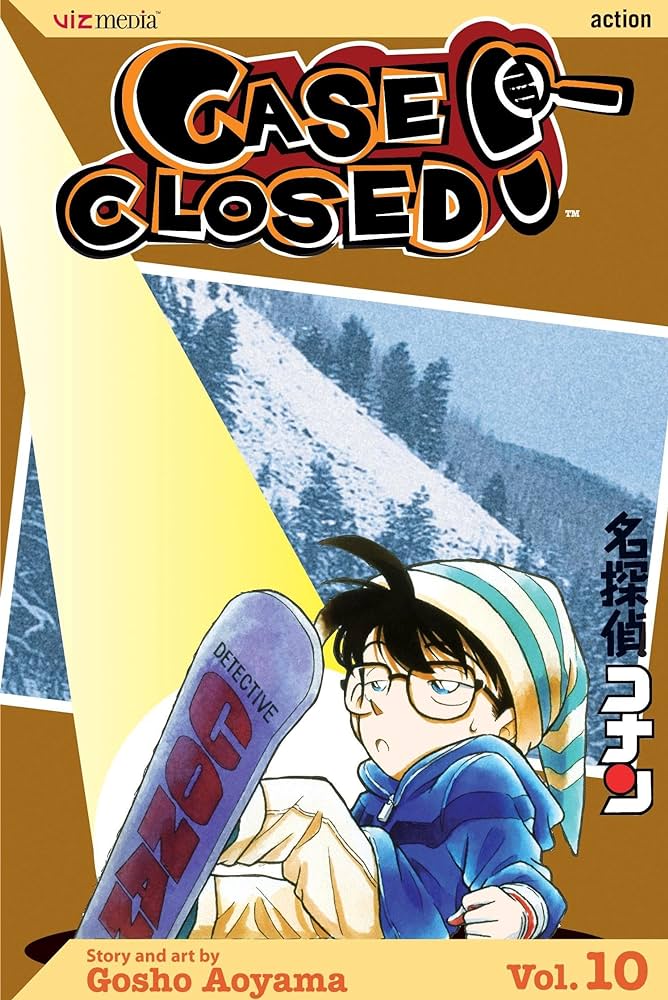
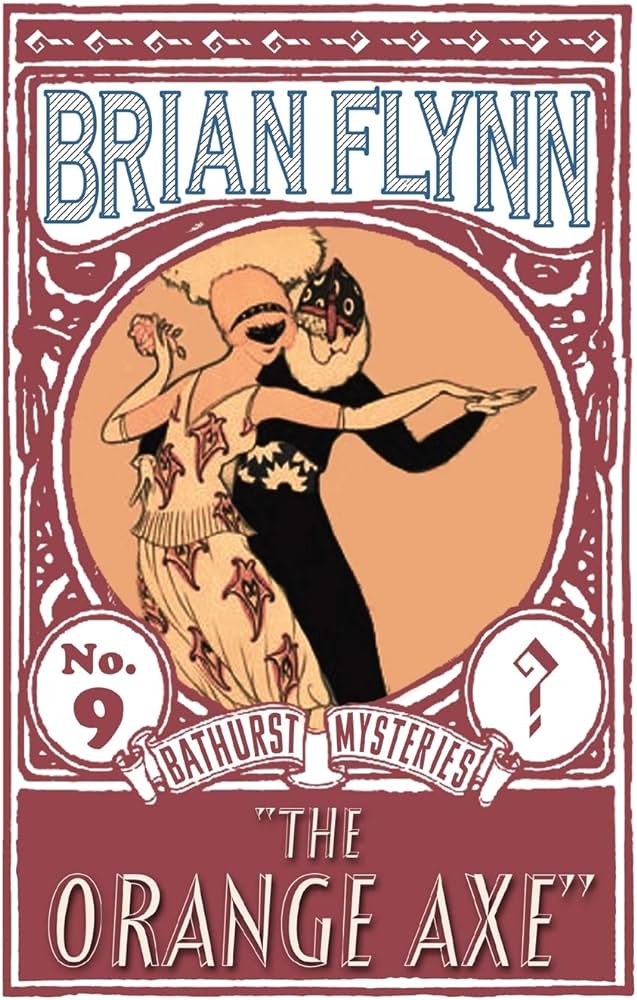
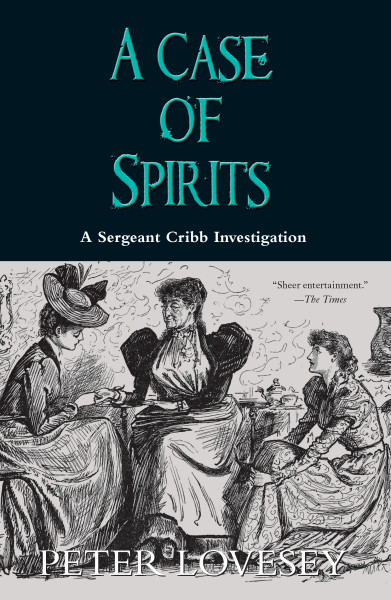
Leave a comment